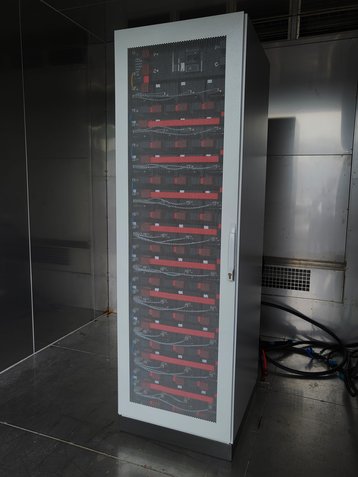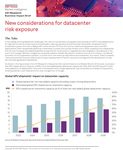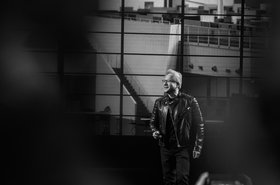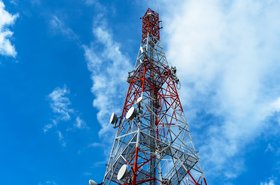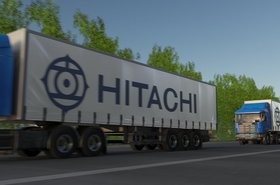APAC data center operator Digital Edge has developed a new energy storage system to replace lithium-ion batteries at its data centers.
First revealed in the company’s 2024 ESG report and officially announced this week, Digital Edge partnered with South Korean energy storage firm Donghwa ES to develop what it calls a Hybrid Super Capacitor (HSC) as a new type of power supply for its UPS systems.
The company says HSC can replace lithium-ion batteries traditionally used in data centers.
HSC technology uses a hybrid energy storage method combining activated carbon, from an electric double layer capacitor, with carbon from a lithium-ion battery to produce a solution that the company says reduces the deterioration of the negative electrode in comparison to other technologies.
Jay Park, chief construction and development officer, Digital Edge said: “At Digital Edge we seek to be more than simply a data center operator, but to be a leader that continues to innovate and set new standards that will elevate the entire industry.
“Partnering with Donghwa, we are proud to have developed the HSC Energy Storage System, which we hope will serve to enhance the safety and reliability of the data center industry, while also supporting our environmental commitments,” he added.
The capacitors are designed to withstand higher temperatures than traditional batteries, potentially up to 65°C (149°F), meaning the equipment does not need to be cooled. Digital Edge said this means HSCs are well-placed to support energy-intensive AI and high power density deployments that require complex liquid cooling.
“The energy density of the HSC is lower than a lithium-ion battery, however, due to its high power density (or C-rate), the HSC system has sufficient capacity to cover the same UPS load as other battery systems,” Digital Edge told DCD. “In addition this high power density means that the HSC system can be recharged in a much shorter time frame, thereby making it more suitable in consecutive power outage situations.”
Digital Edge said the HSC can be recharged “in a matter of minutes”, enabling it to handle multiple contiguous power outages within a data center. The fact it does not utilize metal oxide, reduces the risk of fire due to thermal runaway. Digital Edge said the capacitors have a 15-year lifespan, more than twice that of traditional battery products.
“With its significant decrease in fire risk, 100,000+ discharge/charge cycles capability, minimal maintenance, wider operating temperature range, ability to recharge in minutes vs. hours, and 2.5x longer lifespan, HSC is a viable and safer option to traditional lithium-ion batteries,” the company said in its ESG report.
Digital Edge said initial tests have “proved successful,” and the company is beginning to deploy HSC “on a small scale” across its new data centers.
The company told DCD the current plan is to the HSC in “upcoming new build projects across multiple markets” for non-critical loads only, with a view to deploy the technology for critical loads in the longer term. There are currently no plans to retrofit existing facilities.
Ji-Won Suh, Donghwa CEO, said: “With the rapid advancement of AI, power-intensive data centers are growing rapidly. We have a vision to provide complete safety from incidents that can occur due to thermal runaway in the increasingly power-intensive data center industry.”
Suh continued: “Through our partnership with Digital Edge, we hope to provide a new energy storage system standard for the global data center industry. In particular, we plan to make joint efforts to deploy energy storage systems to hyperscale data centers.
Digital Edge told DCD Donghwa ES created the original concept for the technology, while Digital Edge provided expertise around applying the technology to UPS systems. The intention is for Donghwa ES to commercialize the HSC product for wider industry use within 2024.
“While Digital Edge is a data center operator, Jay Park and the founding team share an ambition to raise the standard of digital infrastructure across Asia Pacific,” a Digital Edge spokesperson told DCD. “This includes supporting the development of innovative new technologies that enhance the quality and sustainability of data centers, and help to future-proof the colocation industry.”

